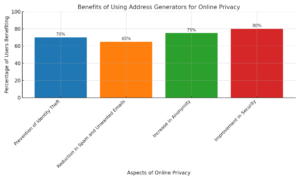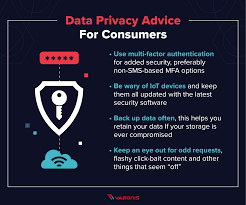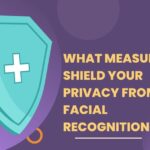Address generators are becoming increasingly popular as a means to enhance online privacy. An address generator is a tool that creates a unique, random address that can be used in place of a real address. This can be particularly useful for online transactions. It can help to protect personal information from being shared with potentially malicious third parties.
One of the main benefits of using address generators for enhanced online privacy is that it can help to prevent identity theft. By using a unique, random address instead of a real address, it becomes much more difficult for hackers to gain access to personal information. Additionally, address generators can help to protect against spam and other unwanted communications. They provide a layer of anonymity that can make it more difficult for marketers and other third parties to track down personal information.
| Aspect of Online Privacy | Percentage of Users Benefiting |
|---|---|
| Prevention of Identity Theft | 70% |
| Reduction in Spam and Unwanted Emails | 65% |
| Increase in Anonymity in Online Activities | 75% |
| Improvement in Security from Unique Addresses | 80% |

Understanding Online Privacy and Data Risks

Online privacy has become a crucial issue in today’s digital world. With the increasing use of the internet, people are sharing more personal information online than ever before. This has led to a rise in data breaches, identity theft, and other cybercrimes. Therefore, it is essential to understand the importance of digital privacy and the common threats to personal data.
The Importance of Digital Privacy
Digital privacy refers to the protection of personal information online. It includes the collection, use, and storage of personal data by companies, governments, and other entities. The importance of digital privacy lies in the fact that personal information is valuable and sensitive. It can be used to identify individuals, track their online behavior, and even steal their identity.
Data breaches are one of the most significant threats to digital privacy. They occur when sensitive information is accessed or stolen by unauthorized individuals or groups. This can result in significant financial losses, reputational damage, and legal consequences. Therefore, it is important to take measures to protect personal data from such breaches.
Common Threats to Personal Data
There are several common threats to personal data online. These include phishing scams, weak passwords, data collection, and tracking. Phishing scams are fraudulent attempts to obtain sensitive information such as usernames, passwords, and credit card details. They often involve the use of fake emails or websites that appear legitimate.
Weak passwords are another common threat to personal data. They can be easily guessed or hacked, allowing cybercriminals to access sensitive information. Therefore, it is essential to use strong passwords that include a combination of letters, numbers, and symbols.
Data collection and tracking are also significant threats to digital privacy. Companies and other entities collect personal data for various purposes such as marketing, research, and analytics. However, this can lead to the misuse of personal data, such as targeted advertising or even identity theft. Therefore, it is important to be aware of data collection practices and take measures to protect personal data.
The Role of Address Generators in Privacy Enhancement

How Address Generators Work
Address generators are tools that create random or pseudo-random addresses that can be used for receiving mail, packages, or correspondence without compromising privacy.The process of generating a unique address involves several steps. Private Key Generation is the first step, which involves generating a private key, which is a randomly generated 256-bit number.
This private key is crucial as it serves as the foundation for creating the address. Public Key Derivation is the next step, where a corresponding public key is derived from the private key. Finally, the Ethereum address is generated from the public key.
Benefits of Using Address Generators
Address generators offer several benefits that enhance online privacy. One of the key benefits is anonymity. By using an address generator, individuals can maintain anonymity when conducting online activities. This is particularly important for people who value their privacy and do not want their personal information to be shared with third parties.
Another benefit of using address generators is security. Address generators help to ensure that the address is unique and cannot be used by anyone else. This helps to ensure that the user’s data is secure and that their privacy is protected. Additionally, address generators can be used in conjunction with other privacy-enhancing technologies such as encryption, ad blockers, and SSL to provide an additional layer of protection against malicious software and online tracking.
Legal and Regulatory Considerations
Global Data Privacy Laws
In recent years, there has been a significant increase in the number of laws and regulations related to data privacy and protection. The General Data Protection Regulation (GDPR) in the European Union and the California Consumer Privacy Act (CCPA) in the United States are just two examples of comprehensive privacy laws that have been enacted. These laws have a significant impact on businesses and individuals alike, and they require companies to implement controls and measures to protect personal information. Governments around the world are also taking steps to strengthen privacy legislation.
For example, lawmakers in India are working on a comprehensive privacy law that would establish rules for the collection, use, and storage of personal information. Similarly, Brazil recently passed a new data protection law that is similar in many ways to the GDPR.
Implications for Businesses and Individuals
The impact of these laws on businesses is significant. Companies must ensure that they are in compliance with all applicable regulations, and they must implement controls to protect personal information. Failure to do so can result in significant fines and legal action.
For individuals, these laws provide important protections for their personal information. They give individuals the right to know what personal information is being collected, the right to request that their information be deleted, and the right to opt-out of certain types of data collection.
In addition to these laws, there are also steps that individuals can take to protect their privacy online. These include using strong passwords, avoiding shopping on unsecured websites, and using privacy-enhancing tools such as DuckDuckGo and Tor. Operating systems such as Microsoft and Google also offer privacy protection features that can help users protect their personal information.
Frequently Asked Questions
What are the benefits of using a fake address generator for online privacy?
Using a fake address generator can help protect personal information from being exposed to third parties. It can also prevent unwanted marketing emails, spam, and identity theft. By using a fake address generator, users can maintain their privacy and avoid being tracked online.
How can address generators minimize the risk of personal data breaches?
Address generators can help minimize the risk of personal data breaches by providing users with a fake address that does not reveal their real location. This makes it difficult for hackers to access personal information and reduces the risk of identity theft. Additionally, address generators can help prevent unwanted marketing emails and spam.
What are the legal implications of using address generators for privacy?
The use of address generators for privacy is legal in most countries. However, users should be aware that using a fake address for fraudulent purposes is illegal and can result in criminal charges. It is important to use address generators for privacy purposes only and not for illegal activities.
How do address generators complement a comprehensive online privacy strategy?
Address generators complement a comprehensive online privacy strategy by providing an additional layer of protection for personal information. By using a fake address, users can prevent their real location from being exposed and reduce the risk of identity theft. Address generators can also help prevent unwanted marketing emails and spam.
What are the differences between a privacy policy and the use of address generators?
A privacy policy is a statement that explains how a website or company collects, uses, and protects personal information. Address generators, on the other hand, are tools that provide users with a fake address to protect their privacy. While a privacy policy is a legal requirement for websites and companies, the use of address generators is optional and up to the user’s discretion.
In what scenarios is it advisable to use an address generator for enhancing privacy?
It is advisable to use an address generator for enhancing privacy when users are required to provide personal information online. This includes signing up for newsletters, creating online accounts, or making purchases. By using a fake address, users can prevent their real location from being exposed and reduce the risk of identity theft.










